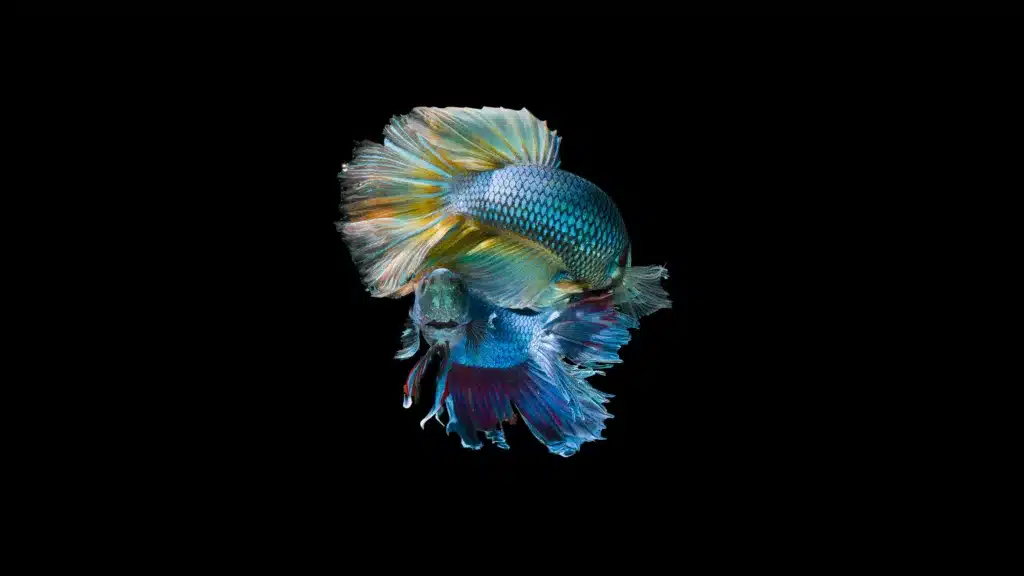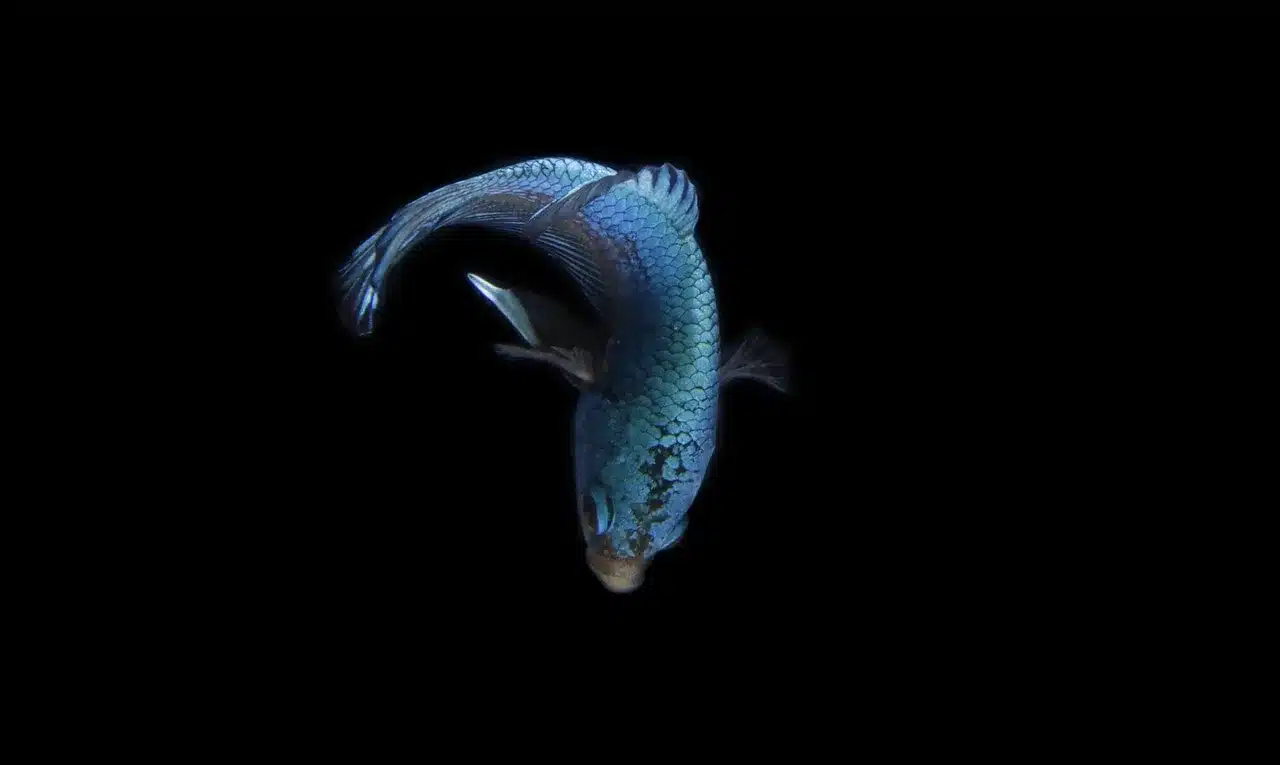Hey there! Ever caught your betta fish spitting out food like a tiny, finicky food critic? Yeah, it’s a thing – and if you’ve seen it happen, you’re not alone. It’s one of those quirky betta behaviors that can leave you scratching your head and wondering, “What’s up with that?”
So, why does this happen? Is your betta fish trying to tell you something about their culinary preferences, or is it more of a health thing? Don’t worry; we’ll get into the nitty-gritty of betta fish spitting out food, break down some common reasons, and see if we can’t make mealtime less dramatic.
Stick around as we dive into this topic. It’ll be short, sweet, and to the point, aiming to turn those mealtime rejections into happy, bubble-blowing approvals. Let’s unravel the mystery together!
Common Reasons Why Betta Fish Spitting Out Food
Diving deeper into the betta fish spitting out food puzzle, let’s focus on the most common culprits. Understanding these can help you tweak your feeding strategy and ensure your Betta eats and enjoys their meals.
Overfeeding
Bettas have small stomachs, roughly the size of their eye, which means they can get full quickly. If you offer more food than they can handle, they might start spitting out excess as a sign they’ve had enough. To avoid overfeeding, provide small amounts they can finish in two minutes or less, and consider feeding them twice a day instead of all at once.
Dietary Variety
In the wild, bettas feast on various foods, including insects and larvae. A monotonous diet in captivity can lead to boredom or nutritional deficiencies, causing them to spit out food they’re tired of or need to meet their needs. Mixing up their diet with a blend of pellets, flakes, freeze-dried, and live foods can keep them interested and ensure they receive a balanced diet.
Food Quality and Preference
Not all betta food is created equal. Bettas can be pretty discerning; if the food isn’t palatable or is of poor quality, they will quickly spit it out. Experiment with different brands and types of food to find what your Betta prefers. Also, check the expiration dates on your food; freshness can make a big difference in taste and nutrition.
Water Quality
Bettas are sensitive to their environment, and poor water quality can affect their appetite and health, leading to food being spat out. Regularly test your water for ammonia, nitrites, and nitrates, and keep the tank clean to ensure your Betta is living in optimal conditions.
Stress
Stress can significantly impact a betta’s willingness to eat. Factors such as aggressive tank mates, inadequate hiding spaces, or even too much flow from the filter can make your Betta feel insecure and less likely to eat properly. Creating a peaceful and stable environment reduces stress and encourages healthy eating habits.
Health Issues
Finally, if your Betta consistently spits out food, it could indicate underlying health issues, such as parasites, bacterial infections, or dental problems. Keep an eye out for other symptoms like lethargy, unusual swimming patterns, or changes in appearance, and consult with a veterinarian who specializes in fish if you’re concerned.
Addressing these common reasons why betta fish spit out food can lead to happier, healthier fish. Paying attention to your Betta’s behavior and preferences, maintaining a clean and stress-free environment, and offering a varied, high-quality diet are all crucial steps in ensuring your Betta thrives.

How to Identify the Cause in Your Betta Fish
Identifying the exact cause behind why your betta fish spitting out food involves a bit of detective work. Here are some strategies to help you pinpoint the issue and ensure your Betta gets back to enjoying their meals:
Observe Your Betta’s Behavior
Start by closely observing your Betta’s behavior during feeding times. Do they approach the food with interest but struggle to eat it? Are they ignoring it entirely? Observing how they interact with different types of food can give you clues about their preferences or potential issues with the food’s size or texture.
Examine the Food
Take a closer look at the food you’re offering. Is it the right size for your Betta’s mouth? Bettas can need help with food that’s too large or hard. Consider the type of food as well—betta fish require a protein-rich diet, so ensure the food meets their nutritional needs.
Check for Signs of Illness
Bettas spitting out food can sometimes indicate health problems. Look for signs of illness, such as faded colors, fin damage, lethargy, or bloating. These symptoms and feeding issues suggest it’s time to seek advice from a vet experienced with fish.
Evaluate Water Quality and Tank Conditions
Poor water quality is a common stressor for bettas that can affect their appetite. Regularly test your water for ammonia, nitrites, nitrates, and pH levels to ensure they’re within safe ranges. Also, consider your tank’s setup—adequate hiding spots, plants, and a suitable temperature are crucial for a betta’s well-being.
Monitor Feeding Habits
Try feeding your Betta various foods to see if they have a preference. Some bettas may prefer live or frozen foods over pellets or flakes. Additionally, adjust the amount of food you’re giving to ensure you’re not overfeeding, which can lead to food being spat out.
Reflect on Recent Changes
Have any recent changes to your tank or Betta’s environment been made? New decorations, changes in water source, or the introduction of tank mates can cause stress or affect water quality, impacting your Betta’s willingness to eat.
Professional Consultation
Suppose you’ve tried these steps and your Betta is still spitting food or showing signs of distress. In that case, it may be time to consult a veterinarian specializing in aquatic animals. They can offer professional advice and diagnose any underlying health issues.
Identifying the cause behind your betta fish spitting out food is essential for addressing the problem effectively. Through careful observation, adjustments in care, and possibly professional help, you can create a healthy, stress-free environment that encourages your Betta to eat correctly.

Conclusion
Wrapping up our journey into understanding why betta fish spitting out food, it’s clear that the reasons can vary widely, from simple preferences to more complex health issues. The key to navigating this challenge lies in observation, patience, and a willingness to experiment and learn what works best for your aquatic companion.
Key Takeaways:
- Know Your Betta: Each Betta has its own personality and preferences. Please pay close attention to their habits and reactions to different foods to tailor their diet effectively.
- Quality and Variety: Ensure the food you offer is of high quality and offers variety. A mix of pellets, live, frozen, and freeze-dried foods can keep your Betta interested and meet their nutritional needs.
- Watch for Overfeeding: Overfeeding can lead to health issues and uneaten food, affecting water quality. Feed small amounts and observe how much your Betta can consume comfortably.
- Maintain a Healthy Environment: Regularly check and maintain water quality and tank conditions to minimize stress and promote a healthy appetite in your Betta.
- Health First: At the first sign of consistent food rejection or other symptoms, consider health issues and consult a professional if necessary.
Remember, a betta spitting out food is not an unsolvable mystery. With some care, attention, and adjustment, you can turn mealtime into a satisfying experience for your Betta. Embrace the process as an opportunity to deepen your understanding and connection with your betta fish. After all, a happy and healthy betta is a joy to behold and a testament to your dedication as a pet owner.
Keep experimenting, stay observant, and never hesitate to seek advice from fellow betta enthusiasts or professionals. Your journey with your Betta is unique, and the efforts you put into ensuring their well-being can lead to a rewarding companionship. Happy feeding!
